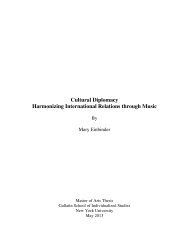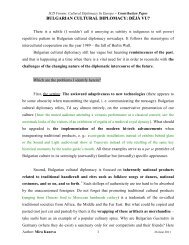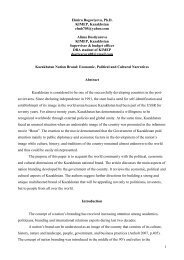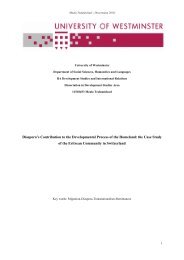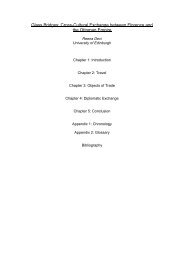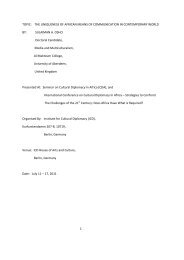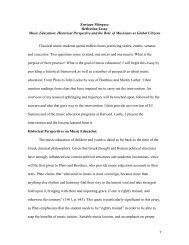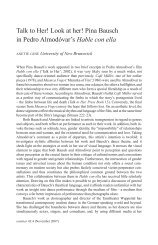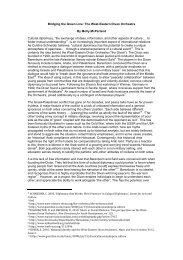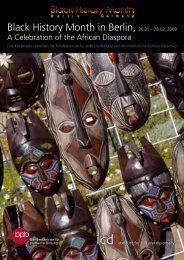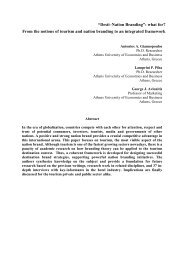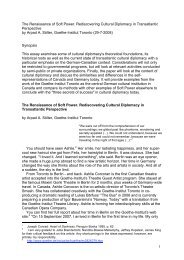Country Profiles: Germany - Institute for Cultural Diplomacy
Country Profiles: Germany - Institute for Cultural Diplomacy
Country Profiles: Germany - Institute for Cultural Diplomacy
Create successful ePaper yourself
Turn your PDF publications into a flip-book with our unique Google optimized e-Paper software.
3.2 Deutscher Akademischer Austauschdienst<br />
The ‘Akademische Austauschdienst‛ was one of the rivaling institutions of the ‘Deutsche<br />
Akademie‛. It was established in January 1925 in Heidelberg. A student of social and political<br />
sciences, Carl Joachim Friedrich, organised 13 scholarships <strong>for</strong> German students of social and<br />
political sciences in cooperation with the New Yorker <strong>Institute</strong> of International Education<br />
inspired by his own studies in the USA from 1922-1923. Following this initiative the<br />
Exchange service <strong>for</strong> political sciences was founded in Heidelberg. In October the same year,<br />
the institution moved its headquarter to Berlin, aiming to organize academic exchanges <strong>for</strong> all<br />
fields of study. The first connections to a <strong>for</strong>eign country were established in 1927 with a<br />
branch in the United Kingdom. France and Hungary followed suit in 1928. From 1930 and<br />
onwards all scholarship students had to become part of the alumni group which was<br />
established three years be<strong>for</strong>e. One year later the exchange service got its final name,<br />
‘Deutscher Akademischer Austauschdienst‛ (DAAD), under which it also operates today.<br />
From 1933 on the DAAD was <strong>for</strong>ced into line with the Nazi regime in <strong>Germany</strong> but claimed to<br />
be continuing work as usual. Many new branches opened over the following years, even after<br />
the start of the war. However, in November 1943 all records of the DAAD were destroyed by<br />
bombings, <strong>for</strong>cing the DAAD to halt its work. With the end of the war, the DAAD was<br />
officially liquidated. 81<br />
In 1950, simultaneously with the founding of the Federal German Republic, the DAAD was<br />
re-launched. It provided scholarships <strong>for</strong> students who wanted to study in West <strong>Germany</strong> and<br />
also supported German students, interns and trainees in their attempts to study abroad.<br />
Since the 1960s the DAAD has set up offices in London, New York, Rio de Janeiro, Nairobi<br />
and many more. Since the reunification the DAAD is cooperating with all higher education<br />
schools and universities in <strong>Germany</strong>. Today the organisation is represented throughout the<br />
world by 14 offices and 50 in<strong>for</strong>mation centres.



